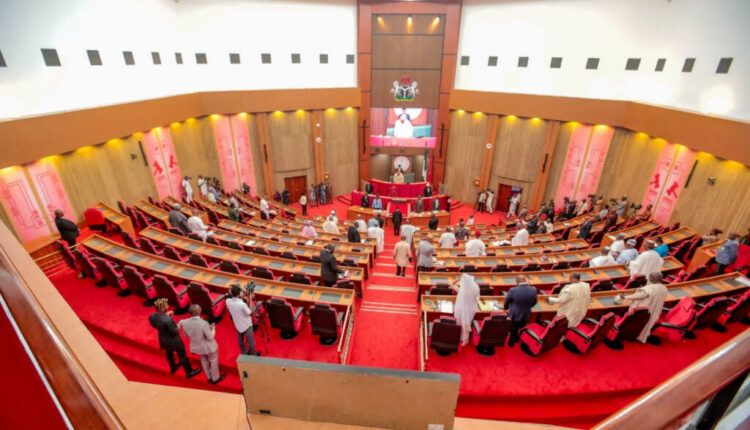The Nigerian Senate is debating a bill that would require an annual presidential address on June 12 to commemorate Democracy Day and move future presidential inauguration ceremonies from Eagle Square to the National Assembly Complex.
It was stated that Senate Leader Opeyemi Bamidele revealed this in an interview on Tuesday.
He stated that the proposed bill aims to “institutionalize” a national address on June 12, a date he regards as having deep historical and democratic significance for the country.
“We are hoping to bring a bill soon to institutionalize the President’s address on June 12 because of its historical importance,” said Bamidele.
He also stated that the law would require the President to deliver the Democracy Day speech during a joint session of the National Assembly, emphasizing the day’s symbolic significance in Nigeria’s democratic history.
Inauguration Moves to National Assembly
In a momentous move that could alter Nigeria’s democratic rites, the bill also proposes moving the presidential swearing-in event to the National Assembly Complex.
“We are hoping, in that bill, to ensure that the swearing-in ceremony of the next President and Commander-in-Chief of Nigeria, whom we believe is President Bola Ahmed Tinubu, will be held within the arcade of the National Assembly,” Bamidele told the Senate.
Read Also: Outgoing AfDB President Adesina Receives New Appointment
If passed, the law will formally relocate the inauguration ceremony from Eagle Square in Abuja to a parliamentary setting, further merging the country’s democratic institutions with ceremonial customs.
Budget Implementation Extension and Constitutional Reform.
The same proposal is likely to address fiscal issues, notably the extension of the capital spending component of the 2024 national budget.
“We need to sit down and evaluate the whole implementation of the 2024 budget. “We will extend the capital expenditure timeline while ensuring that the 2025 budget is fully implemented,” Bamidele said.
As Vice Chairman of the Constitution Review Committee, Bamidele presented reports on current constitutional modifications.
He recognized the delays but pledged that public hearings will begin at the zonal level and culminate in a joint session coordinated by both the Senate and the House of Representatives.
“We completed about 70% of the job before going public. “We intend to complete the constitutional amendment process by the end of the third legislative year,” he stated.
June 12: A National Symbol of Democratic Struggle.
Following the annulled 1993 presidential election, June 12 has become a national day of reflection. Moshood Kashimawo Olawale Abiola is widely regarded as the winner.
The election’s cancelation sparked widespread protests and is widely seen as the catalyst for Nigeria’s move to civilian governance.
Former President Muhammadu Buhari formally announced June 12 as Nigeria’s Democracy Day, replacing May 29, in honor of Abiola and the democratic principles he embodied.
Former military dictator Ibrahim Babangida provided a new perspective to the story in his February 2025 book, in which he publicly confirmed for the first time that Abiola won the 1993 election.

